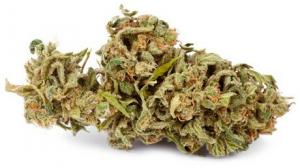The 5 consequences (psychological and relational) of an addiction
The reasons and circumstances why a person uses substances compulsively and addictively are as many as people use. Each one will have its motives, causes and effects, different in each human being. However, similarities can be established in the consequences in severe cases of substance addiction. We will talk about this in this article.
- Related article: "Types of drugs: know their characteristics and effects"
The consequences of addiction
Below you can find a review of the main consequences of substance use.
1. Lack of vital sense
One of the aspects that is usually repeated in, at least most of the cases, is the feeling that life is meaningless, as well as the lack of motivation to progress, hold a job, study or social ties; or, also, the idea that the quality of life cannot be changed and improved, as if the addiction were imposed and the person could not have an impact on it. In short, feeling dejected, without strength, "lost."
- You may be interested: "Existential crisis: when we do not find meaning in our life"
2. Low self-esteem and feeling of self-efficacy
Consuming substances to shut up or stop the anguished thinking, evade, calm down, escape? From what? Probably from oneself, from one's own fears, anguish accumulated over the years, frustrations, pain... escape from being who you really are, hiding behind the "protective mask" that is building a addiction.
Generally experiencing low self-esteem and poor self-concept, addicted people are perceived as not deserving of good things, are listed as "losers". They feel that they have lost their dignity, they feel that they are "nobody." They consider that they should be left alone, as if they did not deserve to have a worthy company, (although it really gives them chills to think of loneliness).
In order for the compulsive user to start the path away from drugs, it will be necessary to arrive at the idea that a health problem is being experienced, something beyond your control and will. Being able to make a change depends on wanting to do it, and for this many times you need a "hit bottom" that helps to reflect.
In fact, as long as a subjective weakening persists, it will be very difficult for the person to take the necessary strength to decide to do changes in the lifestyle you are leading, because there is vulnerability, confusion, dependence, lack of control over life own.
3. Crisis in social ties and loss of control
Absences appear. To give an example, absences at family events, tours (absences) of several days, family misinformation regarding whereabouts and health status. Advice, reproaches or the desire for the addicted person to open their eyes and decide to stay away from consumption are often not enough.
4. Complications at work level
As an addiction gradually progresses, difficulties arise in different areas of a person's life. The work area can also be affected. Late arrivals that occur with absences, accidents at work due to fatigue or as a residual effect of that consumption that could not be avoided before starting the working day. Or even, in an advanced instance of problem use, choose to consume substances within the same work schedule and context, when the self-imposed limits are already minimal or null.
5. Effects on the body
In severe cases of addiction, people fail to take the consequences of taking harmful substances seriously for the body. And many times it happens that you become aware of the body and the damages when they are already advanced and serious. As examples we can leave raised heart disease, circulation problems, dysfunctions and pathologies in various organs, especially the liver, formation of ulcers, deterioration in the system highly strung.
It will be important here to understand that it is a health problem, to accompany as much as possible until the person in question can recognize that he has a problem and that that problem has a solution, for which he must ask and accept help. Little by little the person will stop feeling like nobody to be again, incorporating tools to begin to be able to be, without drugs.


